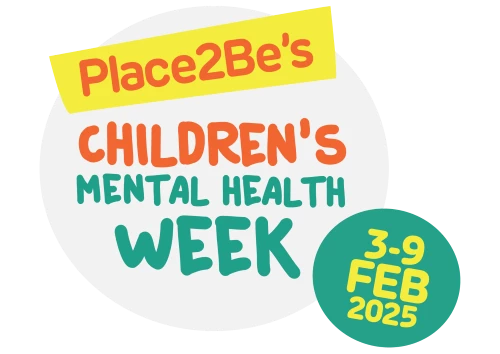Children’s Mental Health Week blog: Me, Myself & I
Children’s Mental Health Week ( 3rd-9th February 2025) is a great time to reflect on how we look after ourselves. Life can be busy, and it’s easy to put our feelings to one side, but taking time to focus on our own wellbeing is important. Here are some simple ways to support your mental health and build a stronger connection with yourself.

- Write Your Thoughts
Keeping a diary can be a great way to express your thoughts and feelings. Writing things down can sometimes feel easier than saying them out loud, helping you to process emotions in your own time. It also gives you a chance to reflect—when have you felt this way before? How did you cope then? Looking back at your experiences can help you find patterns, learn from them, and remind yourself of how strong you really are..
- Take a Moment to Breathe
Deep breathing can help reduce stress. Step outside, breathe in fresh air, and feel the difference. Try the ‘4-4-4’ method: breathe in for four seconds, hold for four, and breathe out for four. Doing this while surrounded by nature—perhaps sitting on the grass at Green Patch—can make it even more effective.
- Take a Moment and Switch Off
We know it can be hard, but try to switch off all your devices, even if just for 10 minutes. Creating space away from screens can help clear your mind and reduce stress. If switching off feels difficult, start small—maybe three minutes on day one, four minutes on day two, five on day three. Building up gradually makes it easier. Use this time to breathe, reflect, or just enjoy a moment of peace.
- Share Your Feelings
Talking can make a big difference. If you have a trusted person in your life—a parent, an older friend, a youth worker, or a teacher—try to get into the habit of sharing how you feel. It doesn’t have to be a big conversation, just small moments of connection. Whether you’re struggling or simply want to talk about your day, speaking openly can help lighten the load and strengthen your relationships.
- Enjoy Nature
Something as simple as going for a walk, getting fresh air, or sitting outside can boost your mood. Being in nature helps us feel calmer, more positive, and more connected to the world around us. Even if you only have a few minutes, stepping outside can make a real difference.
Why not visit our community green space in Kettering, Green Patch? It’s a welcoming green space where you can take a break, enjoy the outdoors, and reconnect with yourself.
- Be Kind to Yourself
It’s easy to be hard on yourself, especially when things don’t go as planned. Try to treat yourself with the same kindness you would offer a friend. Remind yourself that nobody is perfect, and it’s okay to have tough days. Celebrate small achievements and focus on what you can do rather than what you can’t.
- Get Moving
Physical activity isn’t just good for your body—it’s great for your mind too. Whether it’s dancing in your room, kicking a football, or going for a walk, moving your body can help release stress and boost your mood. You don’t have to do intense exercise—just find something you enjoy and make it part of your routine.
- Get Enough Sleep
Not getting enough rest can make it harder to manage emotions and concentrate. Try to stick to a regular bedtime and create a relaxing evening routine—reading, listening to calming music, or taking a break from screens before bed can all help you get a better night’s sleep.
- Eat Well & Stay Hydrated
What we eat and drink can have a big impact on how we feel. Eating regular, balanced meals and drinking enough water can help maintain energy levels and improve focus. Try to include plenty of fruit, vegetables, and whole foods in your diet, and avoid too much caffeine or sugary snacks, which can lead to energy crashes.
- Do Something You Enjoy
Hobbies and interests can be a great way to unwind and boost your mental health. Whether it’s drawing, playing an instrument, reading, or baking, making time for activities that bring you joy can help you feel more positive and relaxed.
- Reach out for Support When You Need It
You don’t have to deal with everything alone. If you’re struggling, reach out to someone you trust—whether that’s a friend, family member, teacher, or youth worker. Asking for help is a sign of strength, not weakness.
Looking after your mental health is about taking small, simple steps every day. Why not try one or two of these tips this week and see how they make you feel?
